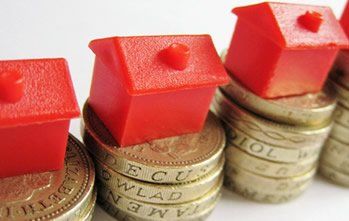Buying a House
Buying a House



The Process of Buying a House
The costs of buying a house means that understanding the process is vital to getting the best deal. Understand what you are looking for and when to make your offer to give you the best chance at purchasing your dream property. We have put together a checklist that leads you through buying your first home.
Research
Put yourself in the best position by knowing your budget, understanding exactly what you are looking for and where you need to be looking to find it.
How much can you borrow?
Before you start looking at properties first thing is to understand how much you can spend. Speak with your mortgage adviser to help decide your limit and use our quote system
to give you an idea on rates and cost.
Don’t forget to take into account arrangement fees, stamp duty, surveyor's costs and any other associated costs.
Know what you are looking for
Understand what you are looking for from your new property whether that is a garden, garage, parking, extra bedrooms etc.
The same goes for the area you are looking to buy in so research the schools and commute distances etc. These will have been something you have been thinking about well in advance but at this stage it’s worth getting it clear as these things, in order of priority, will help your search.
Where to look
Online websites like Rightmove provide an invaluable resource for finding and scoping new properties. Equally important though is to build relationships with local agents who will not only know about properties before anyone else, they will likely know information about local areas and communities, which could be very helpful, especially if you don’t know the area.
Give yourself every chance of finding that perfect place by also keeping an eye on private sellers and auctions. Find out as early as possible online too by using all the latest property apps.
Get out and view
You probably won’t find your perfect place on the first visit but run the game of numbers and get to know the market by viewing as many as you can.
Viewing
Be proactive and view as many properties as you can, this way you will quickly learn what is on offer in the area. Analyse how you respond to a property and learn to balance your instincts and emotions while keeping a clear head at the same time.
Look over the house twice. You only have a short amount of time to judge so make it count. Look once with your emotions – can you see yourself here – can you imagine cooking in the kitchen, or relaxing in the longue? Secondly, look with a clear head. Look at the electrics, structure, damp patches or fixes, is it central heating and does it have double glazing? This is where you become grateful for having your list of priorities saved in your head.
Second look
Remember the disciplines from the first viewing and also prepare some questions in advance. This will help gain all the information you need to take this property seriously. Find out about:
- How long it has been on the market
- Why the seller selling and if they are looking for a quick sell
- Whether other houses have extended and about building permissions
- The council’s plans to build in the local area
- What is included in the sale (shed, fixtures, white goods)
- Where the exact boundaries lay.
Making an offer
Come away from the property after your second look. You need to digest your experience before deciding to make an offer.
Your research will have told you how quickly similar homes are selling in that area and what the demand is but give yourself the edge still by not showing the seller how much you love the property or what your maximum spend is. Often you will make a sensible offer under the asking price which will kick off the negotiation but in area where housing demand is high this is risky as someone can come in at a higher price. This is a balance between your nerves, your budget and your desire.
Final stage
Get the right checks and surveys, sign the contracts and protect yourself in time for when you complete.
Surveys
There are two types of survey. The first is the basic valuation which is required by your lender and probably carried out by their own surveyor (at your cost). The second is the ‘Homebuyers Report’. It is always advised that you survey the property in this detail as anything less could overlook hidden issues that even the current owner may not know about. At any price it could save you money were you to buy a property that required thousands being spent but also if there were issues it would give you grounds to re-negotiate the price.
If there are any problems with the property now is the time to back out of the deal. No contracts have been signed and you owe nothing to anyone. If you still want to go ahead you need to get quotes for the work that must be done as quickly as possible.
Contracts
Now for the scary bit! Once you've completed all your checks and everyone is happy you can sign the contract which commits you to purchasing the property at the agreed price. You will also hand over your deposit and agree a date at which the sale will be completed. This will be done through your solicitor.
Buildings insurance
Your mortgage provider will require you have home insurance in place from the date you complete the sale. At the point the property is sold to you, you are responsible for any damage that may occur so you want to organise this in advance. Although the cost of insurance probably won’t affect your decision to buy a property as the cost is nominal against picking an area or type of property but you want to research providers early so you can find the best deal.
-

Insurance
Write your caption hereInsurance -

Equity Release
Write your caption hereEquity Release -

Remortgage
Check Out Our Best Buy Tables & See If You Could Save.
Best Buy Tables -

Protectyourthings
Get Quotes for Add On Insurance Products such as GAP, Travel, Motor Breakdown, Learner Driver and Much More...
Protectyourthings -

Moving Home
Write your caption hereGet a Quote -

First Time Buyer
Write your caption hereSource a Mortgage -

Sell Your House
Write your caption hereAgentonline -

Buy to Let
Write your caption hereFind Out More -

Conveyancing
Write your caption hereQuote Now
Where to find us:
111 Bramston Street, Rastrick, Brighouse,
HD6 3AQ, UNITED KINGDOM
YOUR HOME IS AT RISK IF YOU DO NOT KEEP UP REPAYMENTS ON A MORTGAGE OR OTHER LOAN SECURED ON IT
Think carefully before securing other debts against your home. Your mortgage is secured on your home, which you could lose if you do not keep up your mortgage payments. Check that this mortgage will meet your needs if you want to move or sell your home or you want your family to inherit it. If you are in any doubt, seek independent advice.
KIS financial solutions is Authorised and Regulated by the Financial Conduct Authority (FCA No. 302556).



